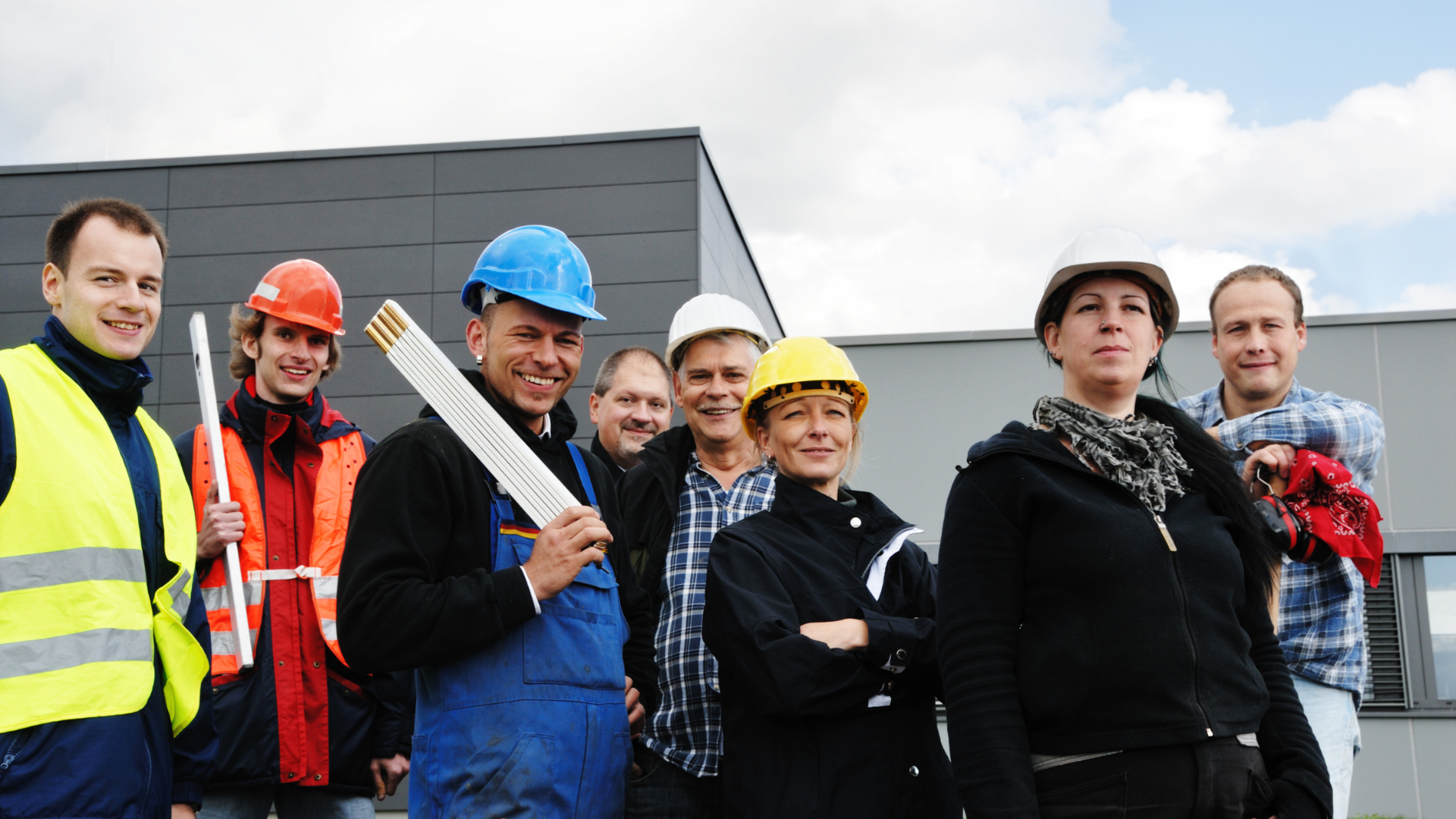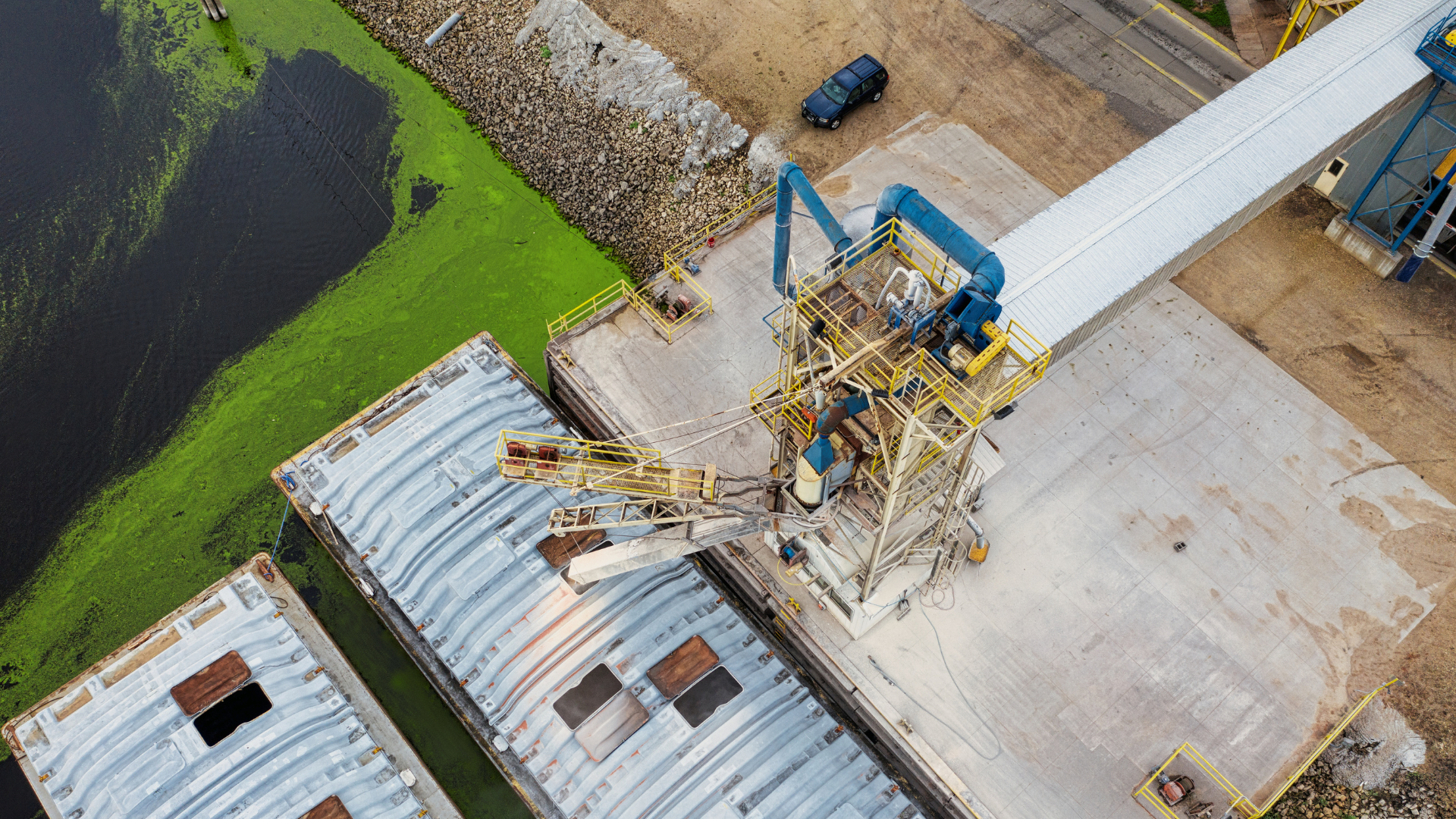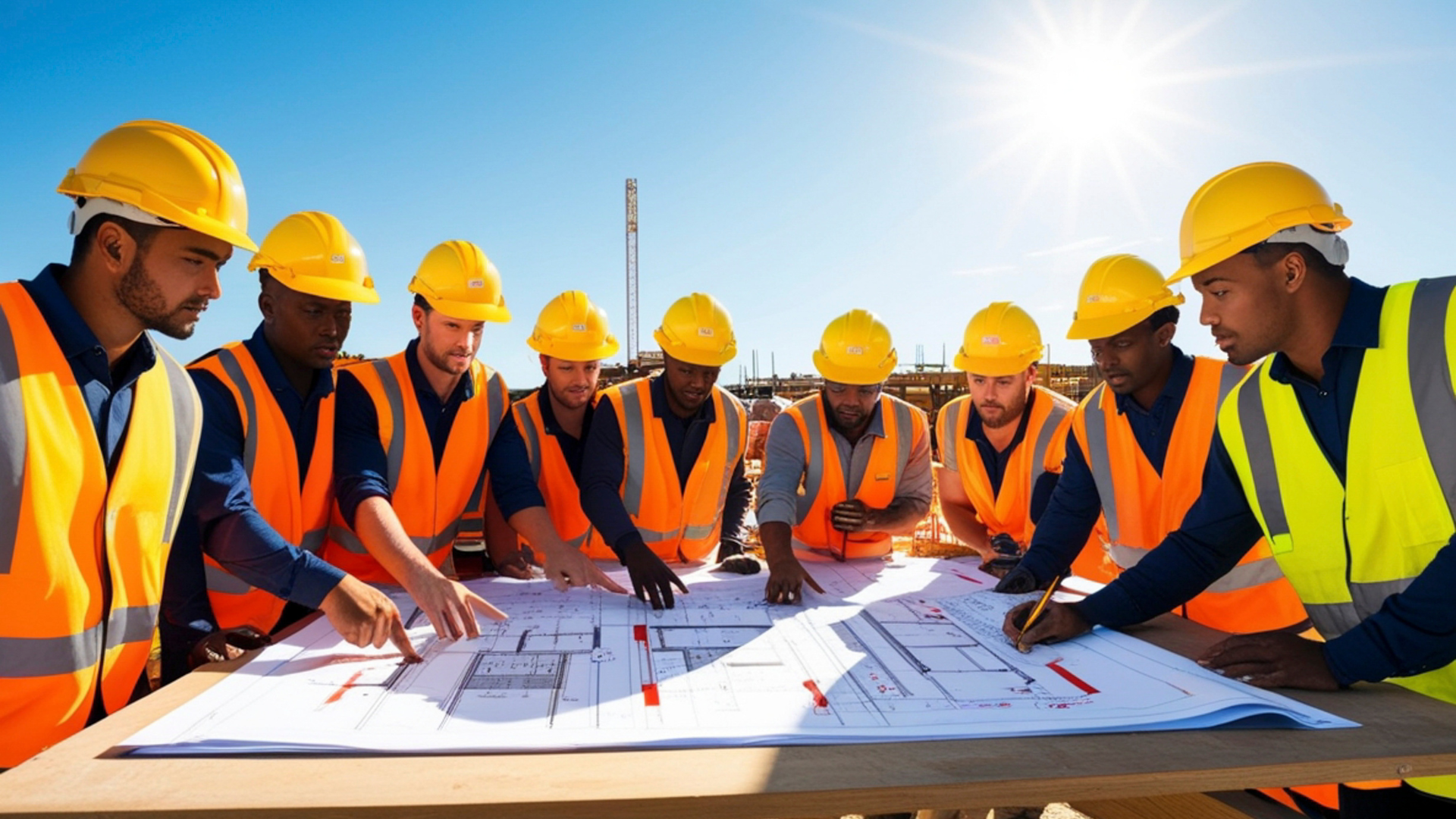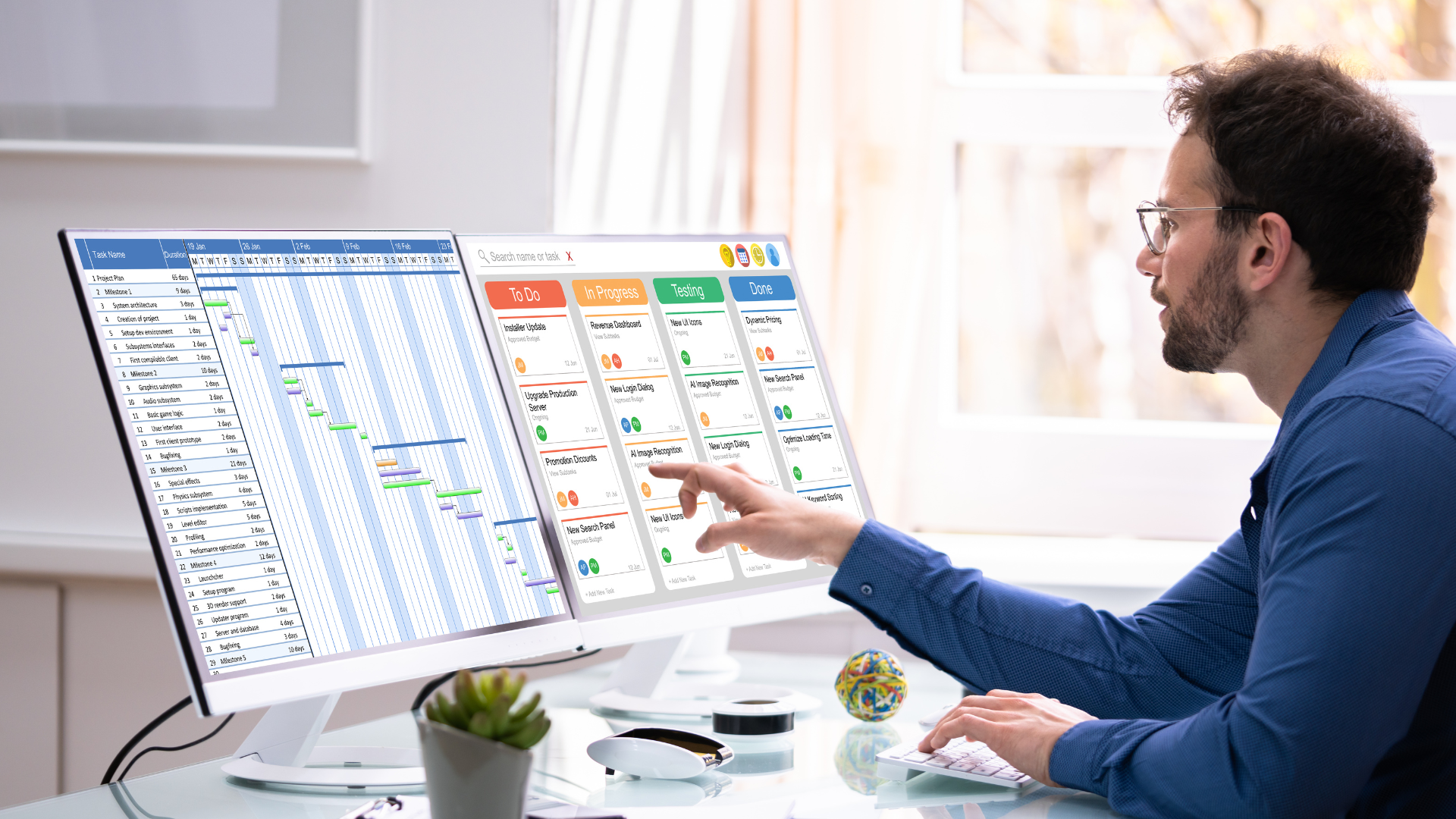The best CRM in the world won’t save you if your team doesn’t know how to use it or, worse, refuses to.
You didn’t invest in construction software to watch it collect dust while everyone goes back to spreadsheets and side chats.
If you want real results, better communication, faster deals, and fewer screw-ups, it starts with proper training.
Whether you run the business or lead the team, here's how to train people in a way that works. This will make your CRM a tool everyone trusts, not another system they try to use.
Key Takeaways
- A construction CRM software only delivers results when your team knows how to use it.
- Role-based training ensures each team member gets what they need.
- Real projects and mobile-first learning make CRM adoption stick.
- Ongoing feedback and performance tracking close the training loop.
What Is a Construction CRM & Why Training Matters
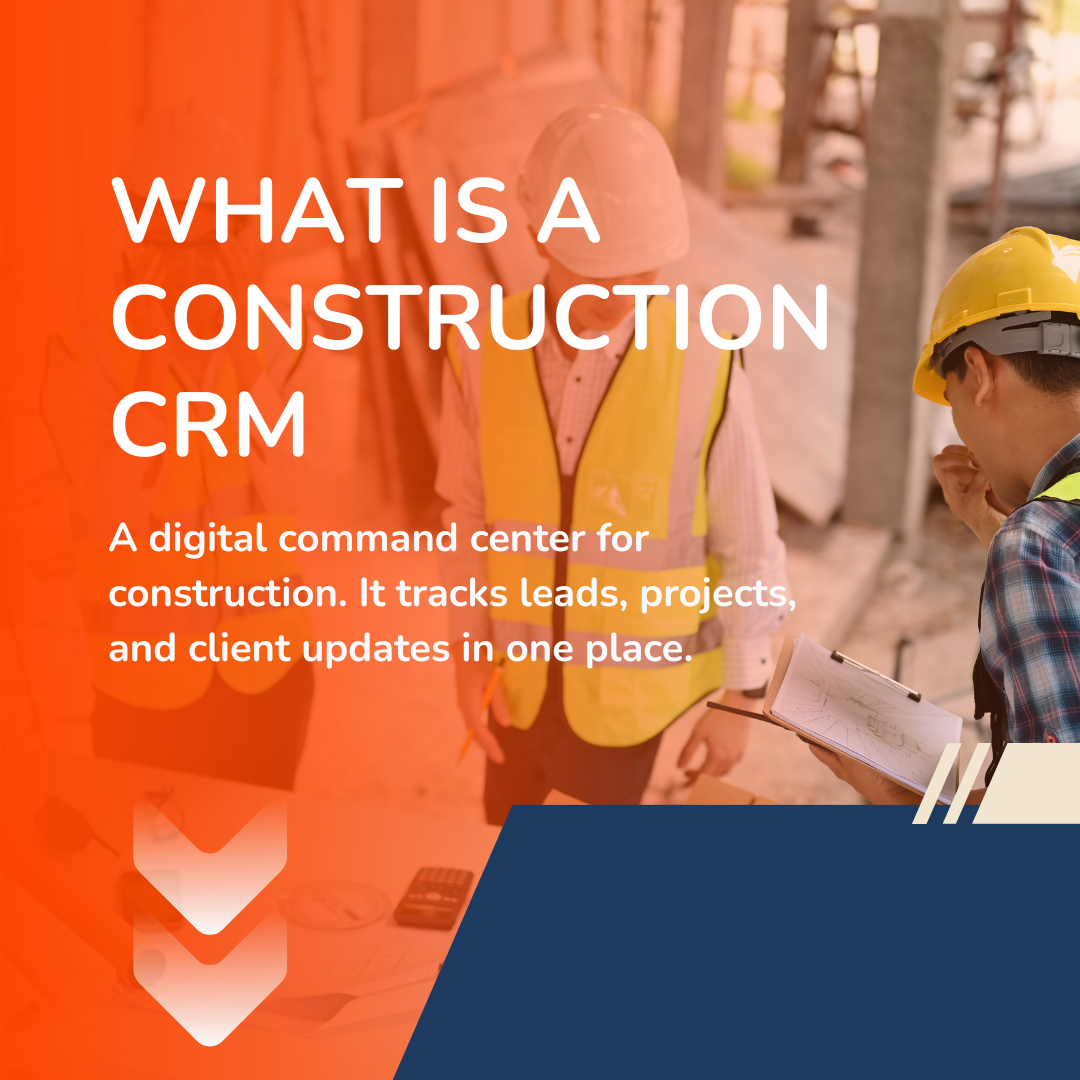
A construction CRM is like your team’s digital command center. It’s a customer relationship management system created precisely for the construction industry, helping you track leads, sales pipelines, project updates, and client interactions all in one place.
If you have bought the Construction CRM software, real work begins now. And that is providing proper training to your team so that this tool helps them work smarter, not harder.
Why CRM Training Is Necessary
Even the best construction CRM won’t make an impact if your team doesn’t know how to use it. Proper training ensures that:
- Sales teams can manage leads and track follow-ups efficiently
- Field crews can update job site activity using mobile tools
- Project managers can oversee tasks, client updates, and key metrics
Proper training ensures that your team uses the CRM system effectively across sales, project management, and field updates.
Also read: Benefits of Integrating Construction Software into Your Business Operations.
In the following few sections, we’ll break down the core training strategies that help your team adopt and use CRM software better, from sales reps managing pipelines to general contractors out on the job site.
1. Tailor Training to Different Roles
Different teams in the construction business use CRM systems in different ways. Here’s a concise table on how a single CRM system can support your entire team, each using it in their way to move projects, sales, and client relationships forward.
| Role | How They Use the CRM | What to Train Them On |
|---|---|---|
| Sales Team | Track leads, manage sales process, automate follow-ups, and send proposals. | Lead management, pipeline CRM navigation, automations, customer data tracking |
| Project Managers | Oversee project management, update client communication, and manage documents. | Task tracking, client updates, document uploads, and project management tools |
| General Contractors & Job Site Teams | Update job progress, upload site photos and documents, and use the mobile app for real-time updates. | Mobile app usage, task checklists, photo uploads, and basic customer data access |
2. Use Real Projects to Teach
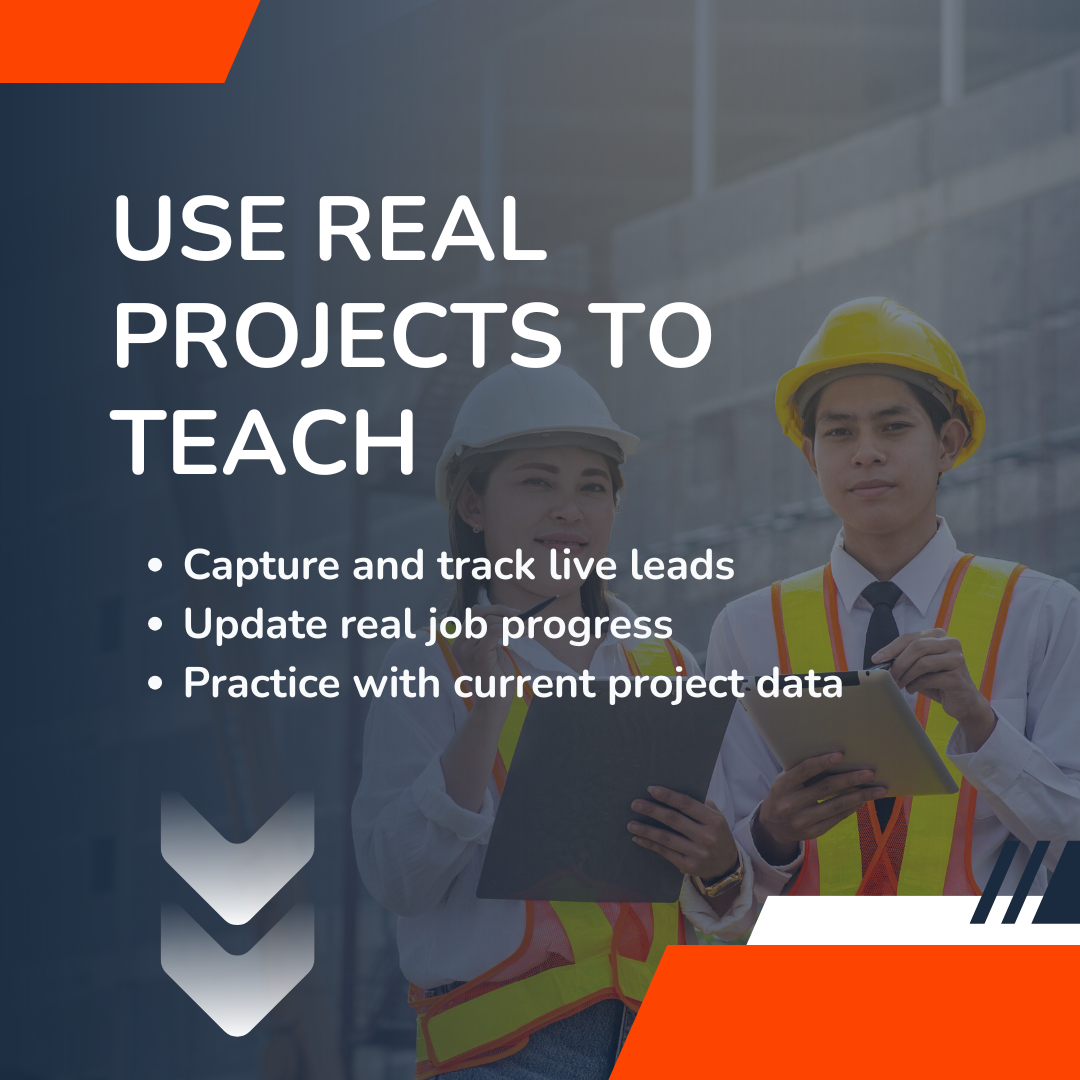
If you want your construction CRM to stick truly, move beyond demos and into real-life scenarios.
Whether you are a residential builder or a commercial construction company, you should use actual jobs already in progress for training. This shows your team how the CRM fits naturally into daily operations while driving business development.
Here’s how to make it real:
- Walk through lead capture, conversion, and tracking using live builders pipeline CRM workflows
- Use historical data and existing customer data to practice client communications
- Let project managers and field teams update project details, upload documents, and track job progress live
When training mirrors active job sites, CRM adoption and real ROI skyrocket.
3. Create Easy, Accessible Resources
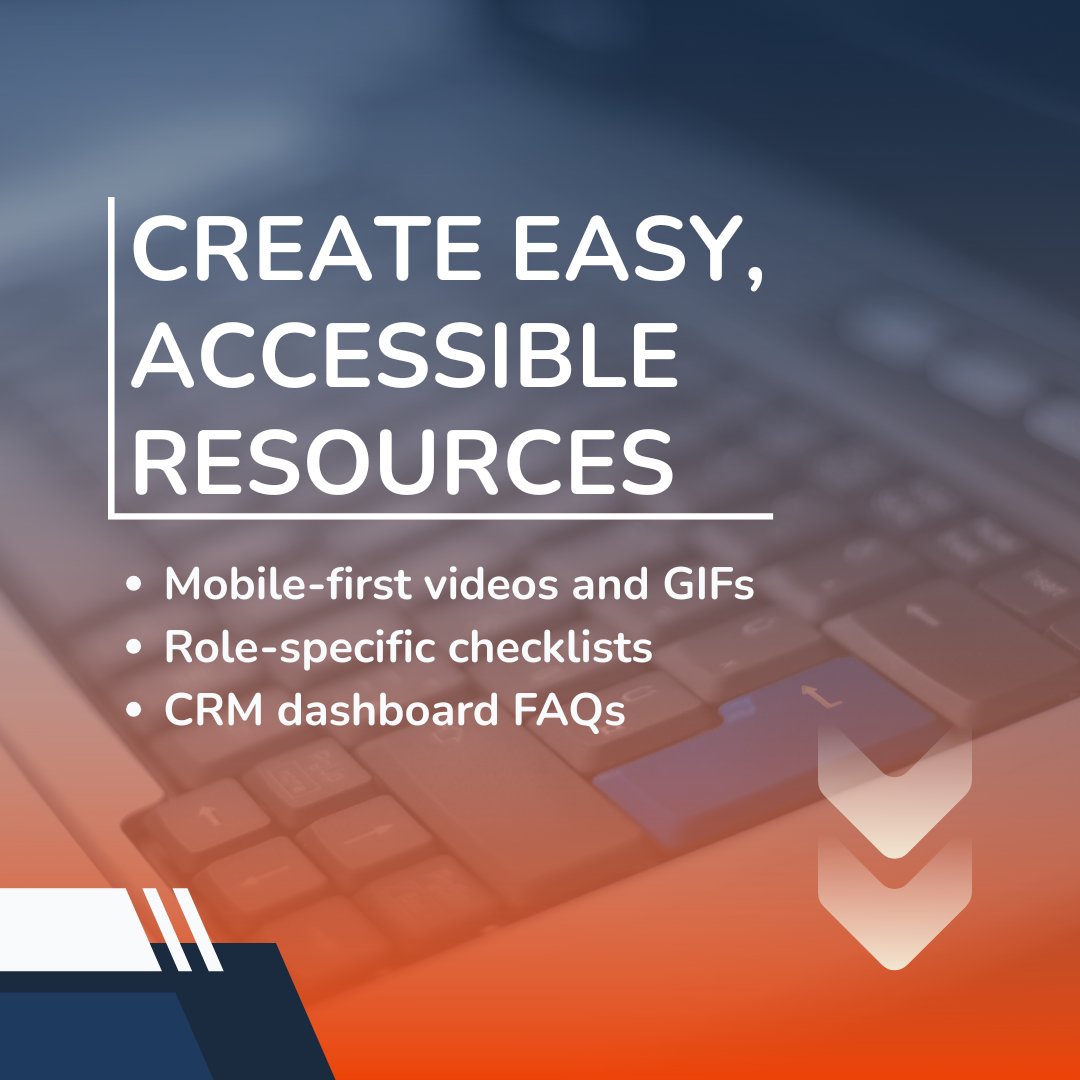
Your team learns best when the information they need is right at their fingertips, especially in construction, where no one has time to dig through long manuals.
Why Accessible Resources Matter?
Training shouldn't end after one onboarding session. In construction, teams need quick reminders they can access from a job site, an office, or even their truck.
How to Make Learning Easy?
- Provide mobile-first videos and quick guides.
- Create role-specific checklists and "how-to" sheets.
- Integrate to-do lists and FAQs directly into your CRM dashboard.
When learning is fast and flexible, your CRM becomes part of how your teams work, not just another tool they forget about.
4. Encourage Real-Time Feedback & Q&A
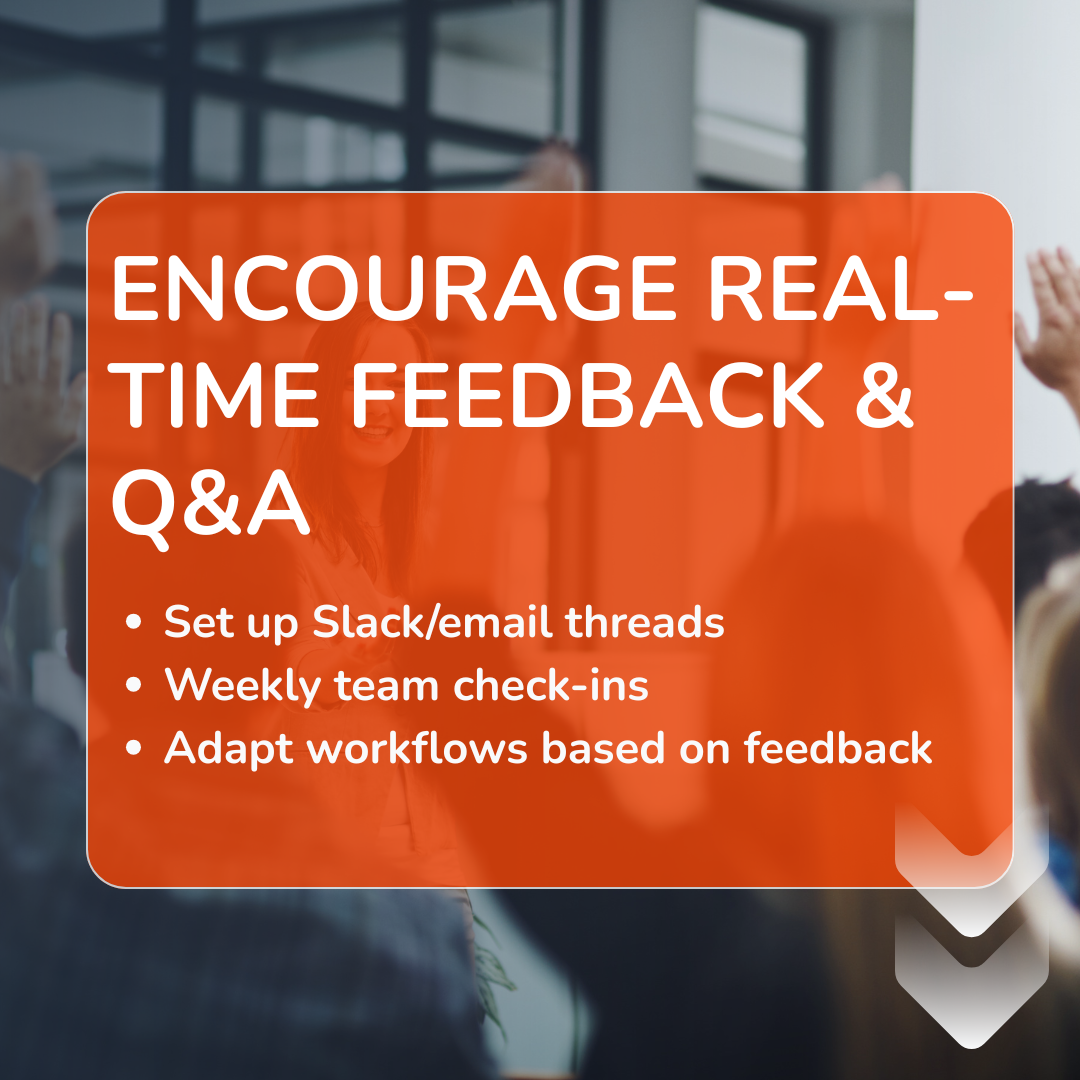
Your CRM isn’t just a tool. It’s a conversation. Teams work better when they know their voices are heard.
Why Real-Time Feedback Matters?
When teams feel comfortable asking questions or flagging issues early, CRM adoption becomes smoother. It also helps you catch and fix pain points before they turn into bigger problems.
How to Build a Feedback-Friendly Culture
- Set up Slack channels, Teams groups, or email threads where people can ask quick questions.
- Hold weekly check-ins or short standups to gather feedback
- Adapt your CRM workflows based on real input from general contractors, project managers, and field teams
When feedback is part of the flow, not an afterthought, customer relationship management naturally improves across your construction business.
5. Track CRM Usage and Adoption
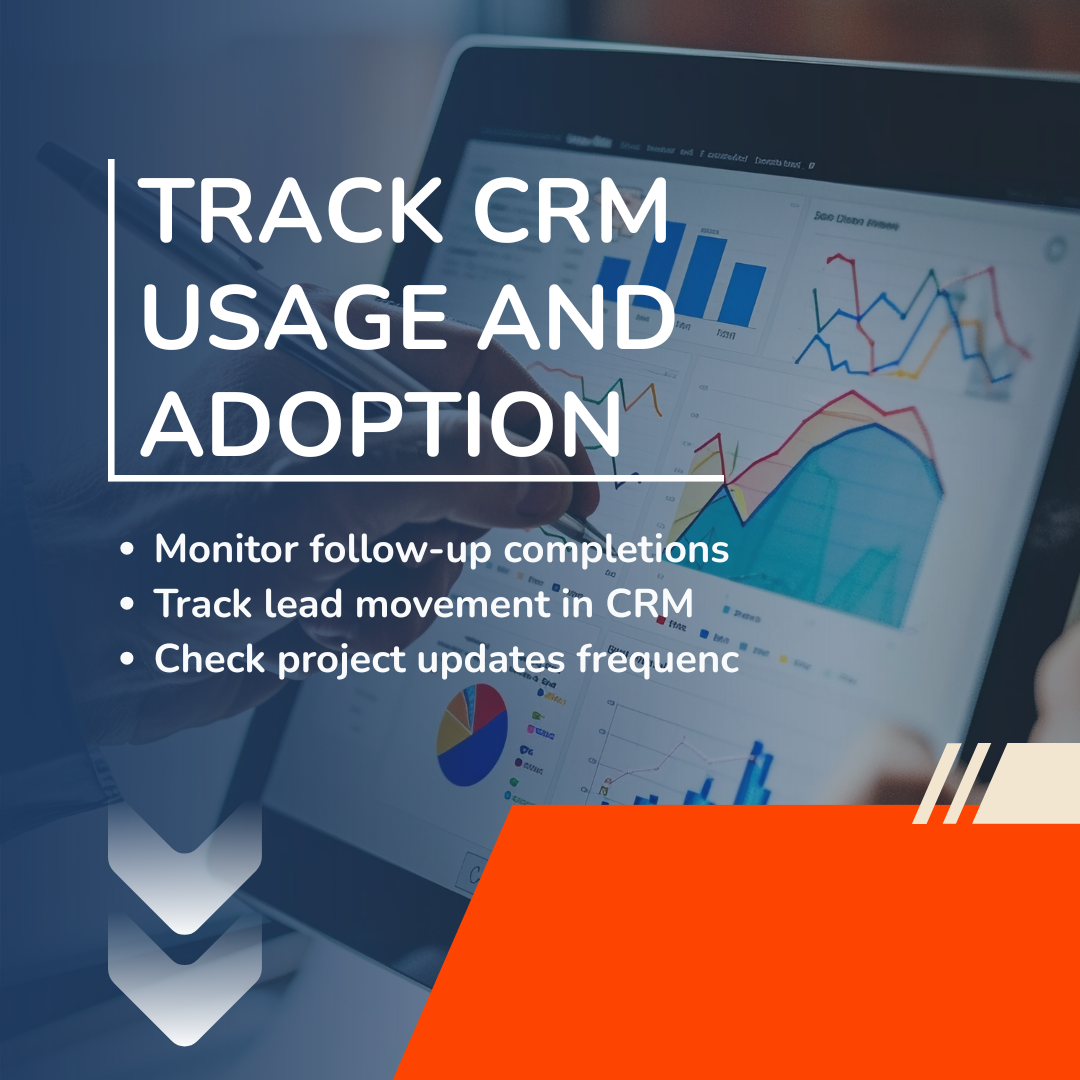
Training is only half the battle. Tracking how your team uses the CRM is what keeps momentum alive.
Why Tracking Usage Matters?
You can't improve what you can't see. Monitoring CRM activity helps you spot gaps, celebrate wins, and track your team's progress through lead management, follow-ups, and project tracking in real-time.
How to Track CRM Adoption?
- Check how many follow-ups are completed on time.
- Track which sales reps are moving leads through the builder's pipeline CRM efficiently
- Monitor how consistently project tracking updates are entered
Use these insights to make smarter, data-driven decisions about additional coaching, tool adjustments, and process improvements.
Also read: Streamlining Project Workflows with Advanced Construction CRM Tools
Bonus Tip - Keep Training Continuous, Not One-and-Done
Training your team isn’t something you can check off a list once and forget. Great CRM habits are built over time and reinforced with every new project, update, and opportunity.
Why Continuous Training Matters?
CRM systems evolve. Your business evolves. If your team's skills don’t evolve, adoption declines and progress halts. Regular training ensures that everyone stays sharp and confident.
How to Keep Training Alive?
- Offer quick refresher sessions when your CRM updates or new features launch.
- Align CRM training with pipeline reviews, project planning, or quarterly team meetings.
- Build simple onboarding pathways so new hires hit the ground running
When training becomes part of your company's rhythm, not a rare event, you create a stronger, more future-proof CRM culture.
Meet Constructionbase: Built for Real Teams, Real Sites, and Real Results

Finding a construction CRM that fits your team's day-to-day work isn't easy. That's why we built Constructionbase: to give construction companies a solution designed around how real teams operate on real job sites.
What Makes Constructionbase Different?
- Mobile-Ready: Our CRM works wherever you do, on-site, in the office, or on the road.
- Built for Builders: With pipeline CRM tools and detailed project tracking, your team can manage every lead and project without the usual friction.
- Designed for Real Collaboration: Sales teams, project managers, and site crews can all access the information they need in one intuitive platform.
Why Teams Love It?
- Update project status, upload site photos, or track leads from any device
- Keep customer relationship management focused and straightforward, not overwhelming
- Support business development efforts with better pipeline visibility and faster decision-making
With Constructionbase, you don’t just manage jobs, you grow stronger client relationships, win more bids, and build a smarter construction business from the ground up.
Check out: The Ultimate Guide to Choosing the Right Construction Management Software
Wrapping Up
Training transforms CRM software from a tool people avoid into a system teams love.
When your sales reps, project managers, and site crews know how to use it, your construction CRM boosts customer satisfaction, improves project outcomes, and helps close more deals faster.
The best construction CRM isn't just technology. It's a foundation for scaling your entire business.
About Constructionbase
Don't let outdated processes and missed follow-ups hold you back. Start closing deals faster, managing projects smarter, and building a business that lasts.
FAQs
1. What is a CRM for construction?
A suitable construction CRM is a platform built specifically for construction companies. It helps with leads and financial management, customer interactions, and project updates, thus streamlining the process from start to end.
2. Why is training necessary for CRM adoption?
Even the best construction CRM won't help if your team isn't trained. Proper training ensures consistent usage, faster project tracking, and improved client experiences, which ultimately streamline the entire construction process.
3. How often should I train my team on the CRM?
Training should happen with every major CRM update, every new hire onboarding, and whenever sales processes or project workflows evolve. Ensure it's mobile-friendly as a mobile app lets crews update job progress, upload project details, and communicate with the office, all from the job site.
4. How can proper CRM training help construction firms win more jobs?
When teams understand key features, they operate more efficiently. Practical training helps employees use tools like customer management and document management to streamline the construction process. This leads to quicker project delivery and enhanced client interactions that attract potential clients and help construction firms secure more jobs in a competitive market.
Have questions or need personalized advice?
Talk to an Expert Today and let our construction specialists guide you to success.

